For a while I had been contemplating having a male cover star for Nounouche and of all the people I could think of, there was no story, nothing new. When I heard the news of Rulani Mokwena’s appointment as the head coach of South Africa’s most celebrated football club Mamelodi Sundowns at only 35 years of age, it was a done deal… He made sense. His story is that of a David in a world full of Goliaths, a vanquisher.
I had been introduced to his work from his days at Orlando Pirates. I nervously asked him to be on the cover and I got an enthusiastic yes and here we are, deeply honoured to be telling his story.
He was born and raised in Orlando, Soweto to a single mother – Linda Mokwena, with the help of his grandmother. Rulani describes his childhood as one that was full of love and warmth but also one that saw him grow up fast and make sacrifices that would lead him to where he is now. His mother got married and moved out of Soweto when Rulani was still young and at that time he was already involved in football and chose to stay with his grandmother. He comes from a rich legacy of football. Not only is his father (Julius Sono), uncle (Jomo Sono) celebrated football figures but he marvels more at his grandfather’s (Eric ‘Scara’ Sono) legacy and impact in football which has outlived him.
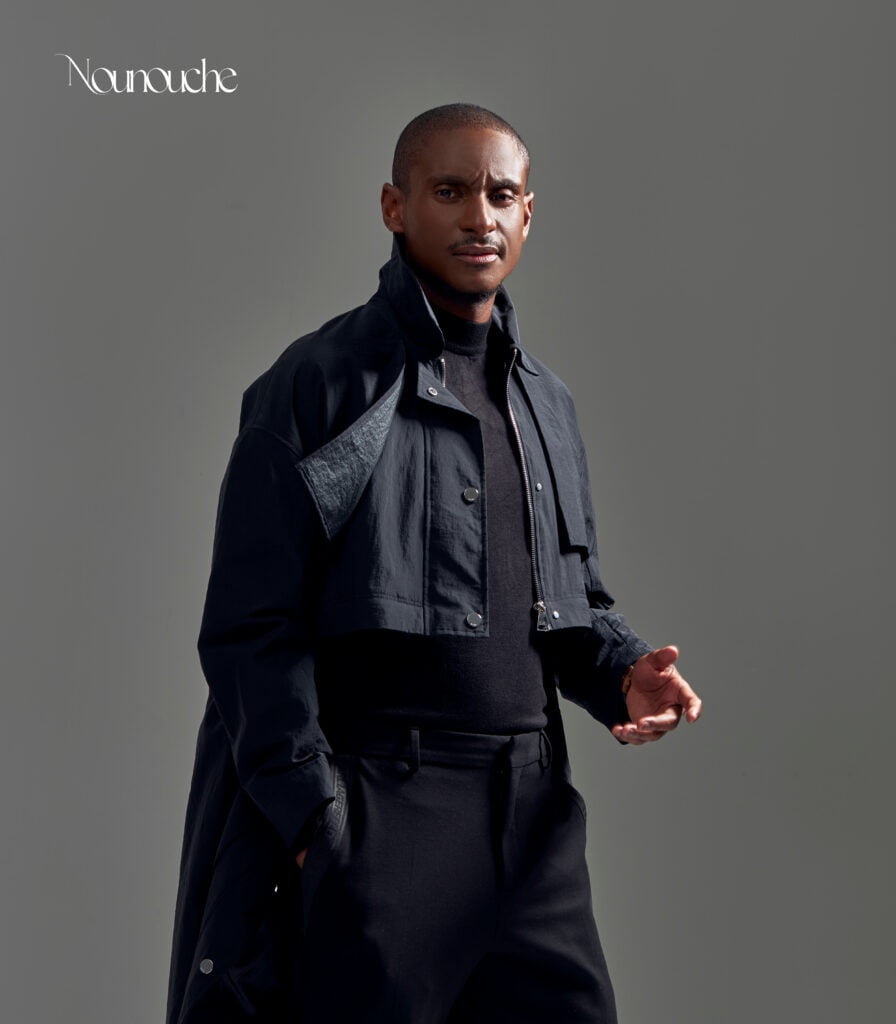
Rulani Mokwena’s mantra is to always be human first. A great human at that beyond football and anything else.
The Mamelodi Sundowns head coach has a good head on his shoulders; a result of the strong, faith-filled matriarchs that raised him, and speaks with a maturity beyond his years.
While his name has been in the spotlight for several years, Rulani is someone who prefers being in the background.
That is how he approaches his coaching, a skill he learnt at the tender age of 14.
“I’m more of a leader than a manager. Managers have that need to micromanage, I don’t do that, I lead in the sense that I can be in the background a lot. I don’t like speaking in front of crowds, it’s about the football players – I like to be the type of coach in the periphery, in the background, I will be at the forefront in crisis and difficult moments.”
Football runs in the family. Rulani’s father, uncle and grandfather all played the game of football.
“Becoming a football coach and following this career was by default because I don’t remember at any time deciding to become a coach or aspiring to be one from an early age. I do think that being a coach is a calling. I say that because I can trace back certain memorable and important events in my life that directed me towards coaching.”
Coming from a family of legends, Rulani has had to find his one pathway in the sport as a non-player.
“As a young kid, it was impossible to be a coach because all the coaches were retired footballers. That’s the image we always had but when I look back now I get to understand why I had to be a football coach. A lot of that has to do with the family that I come from. Football is in my blood, the earliest memories I have are of me being in a football stadium, football has always been a passion and coming from my family I could not escape it.”
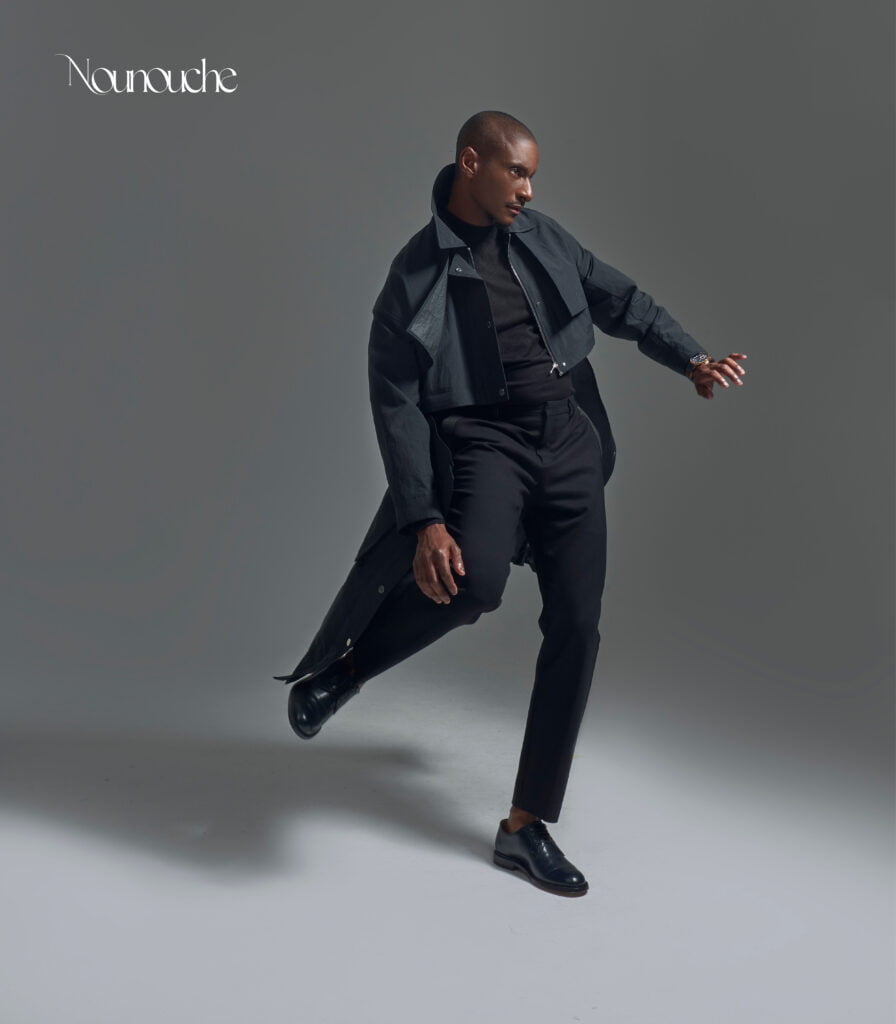
Football or Law
When Rulani finished his matric, it was the first time he found himself at a crossroads to decide on the career he wanted. It was between becoming a coach or further his studies towards a degree his mother preferred, Law.
“It was my teachers that said to my mom that I should study Law. I filled in the application forms but the one question in particular asking which degree I was going to study, I left blank. After my mom signed the forms, I filled in the blank with Sports Science. In her mind the teachers were right and she wanted me to become something else, something safer but I was insistent – it’s a story of a lot of kids. It’s not always easy following your passion but it comes with a lot more happiness and peace. You have the intent to live with yourself better.”
At 35, Rulani is an anomaly in the football world. It’s not a common occurrence to have such a young coach for a football club. It is also South Africa’s most successful club. This comes with a lot of challenges.
“It is a difficult position with all the pressure, stress and sacrifices you have to make. There are landmines you need to navigate your way through and it can become difficult to encourage anybody to go through the same path or journey.”
The field, he says, is not accommodating to young leaders and he is served a double whammy as he has not played the sport as a professional either.
“These become incredible handicaps in the race but over and above the difficulties is the other side that drives me. Working with football players to become better footballers and human beings. I try to influence their ways of thinking and more so make them feel valuable, seen as people and in that way influence generations to come. As a young leader so many look up to you and aspire to be like you.”

For Rulani, coaching influences his relationships, health, and day-to-day activities because it engulfs and takes over his life completely.
“It’s a part people don’t want to accept but it’s a critical part that comes and brings with it the success, glory, fame and fortune that people see. What they don’t see is the other side and that is what makes or breaks you – blessings and burdens are cousins. It’s a blessing to be a coach and lead one of the biggest teams in South Africa but with that also comes the burden of carrying that responsibility.”
As a young PSL (Premier soccer league) coach some of the challenges he faces is having to prove himself.
“Society doesn’t welcome young leadership. There are difficulties working with people, you have to prove your worth and capacity. That is too demanding because you have to stay motivated to give your best.”
Rulani says the advantages of being a young coach include the privilege of influencing generations and inspiring them to become great coaches, footballers and just better human beings.
He also has to navigate working with people older than him many times and in some cases is met with criticism.
“I can’t change their perceptions. I try to be as authentic as possible and do my best, making decisions and moves that are best for the club. That is something that is not going to be easy for everyone to accept. I also don’t make decisions based on my ego or feelings but on what is best for the club”
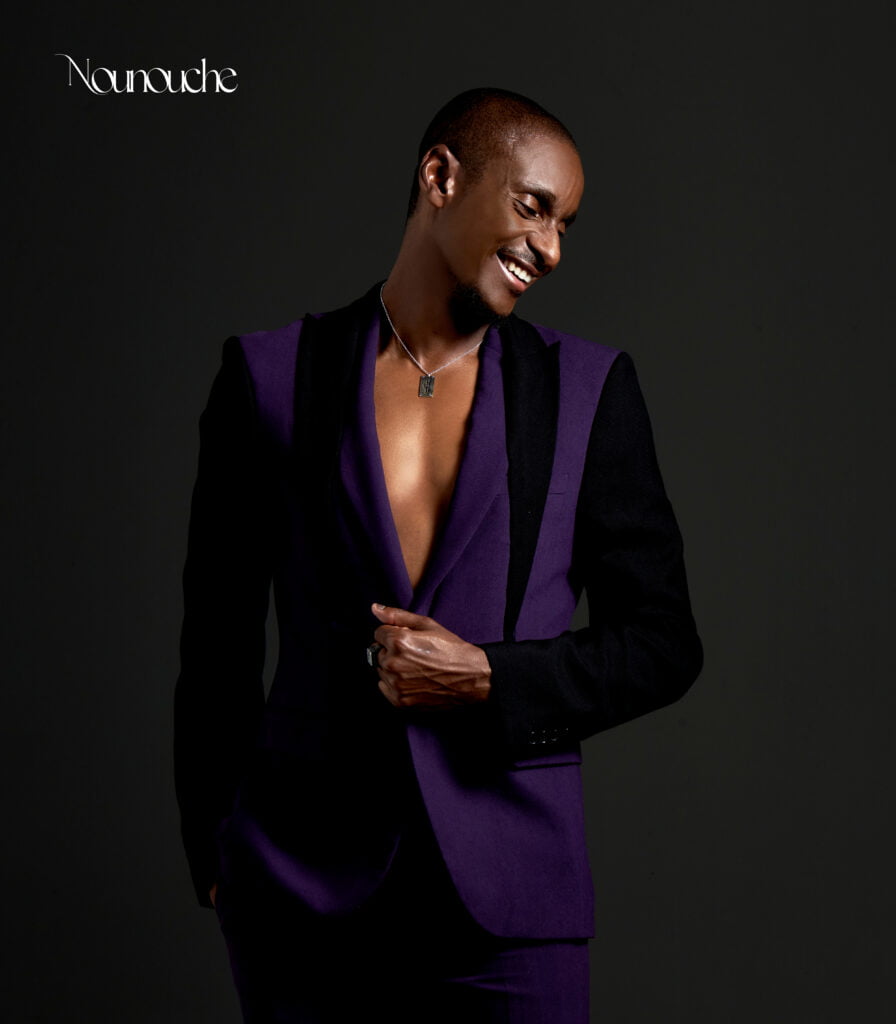
On Self-awareness
If he were to give his 14-year-old self some advice it would be to not take everything so personally, something Rulani still struggles with to this day.
Dealing with criticism can be a challenge for him.
“I’m very emotional and take things personally but I’ve learnt that people will only respond from their own position and can only meet you where they have met themselves. You are the only one that can understand your position. Nothing can be personalised towards you if it is not from you.” Rulani is also very self-aware, fully accepting of himself, his shortcomings and strengths and the beauty in that nothing about him can be used against him. ‘It keeps me motivated and driven. I try to always make sure my growth speaks in the good and bad moments, that’s what makes me comfortable in facing mistakes and failures – people can’t hold that against me because I know who I am and comfortable in my truth”. Rulani has always been hard on himself and more lenient on others.
“In that sense I am very self aware. I don’t think anyone can put more pressure or stress on me because I already do that to myself.”
For him, a great footballer is someone who knows how to fundamentally be a great human being first.
“Your human qualities have to stand out, apart from being talented and a team player, integrity is important.”
How does he balance the boundaries when it comes to being friends and a boss to his players?
“First thing I do is to try to establish an emotional connection with the players. They tend to play well for you when they know that emotion is authentic and not fabricated. I try to be that type of coach that can be relied upon as a brother and friend. The true definition of a friend is someone who can tell the truth and my relationships with them are rooted in truth.”
Rulani says as a coach he has learnt to be self-reliant and be as available for himself as he is for others.
“Coaching is not easy because you are dealing with people with emotions, and other needs. As a coach you have to be the part that no one else is; their foundation for their performance, happiness and sense of belonging. Reality is you must find space for yourself and find yourself people that you can trust, who can support you and give you the encouragement and energy you give towards others.”

Faith
Rulani has had to sacrifice and pay his dues to get to where he is today and in many of the difficult phases, only prayer has gotten him through.
“I know nothing else and I am fortunate enough to be a living testimony and a person that can speak and reveal the marvellous things that God has done in my life – that is demonstrated in my day-to-day conduct and how I carry myself. The most important thing is to always try to be a better human being. That helps me reflect the grace and favour that God has had upon my life and also gives me the opportunity to be proud of who I have become. I have no other thing to be dependent on except prayer, especially in the difficult moments. With prayer comes hard work and consistency and motivation.”
His biggest prayer for himself is for good health.
“You can be intelligent and driven but you can’t experience the potential and outcomes of those things if you are not healthy. My biggest prayer is for good health for myself and for the ones meant to be part of my journey so they can help and support me to become better and vice versa.” He is grateful to God for his talent and the opportunities that have come his way.
Influences
While Rulani is inspired by many people, two South African figures stand out – Orlando Pirates chairperson, Dr Irvin Khoza and President of the Confederation of African Football (CAF) Patrice Motsepe. Dr Khoza continues to give him great advice while Mr Motsepe has supported him in identifying his strengths, both have helped shape his personality and character.
“They remain huge inspirational figures and incredible mentors whom I’ve learnt a lot from. They have influenced my thinking and conduct and made me a better coach and a better person. I would have loved to meet my late grandfather who was a scout and unearthed great football players – he was a genius and a great leader. If I could ask God for one thing, it would be an opportunity to meet him. These men are some of my biggest inspirations. My mom is someone I also look up to for raising me as a single parent. Everything she did to provide for me speaks to her sacrifices and I have a deep sense of gratitude for that.”
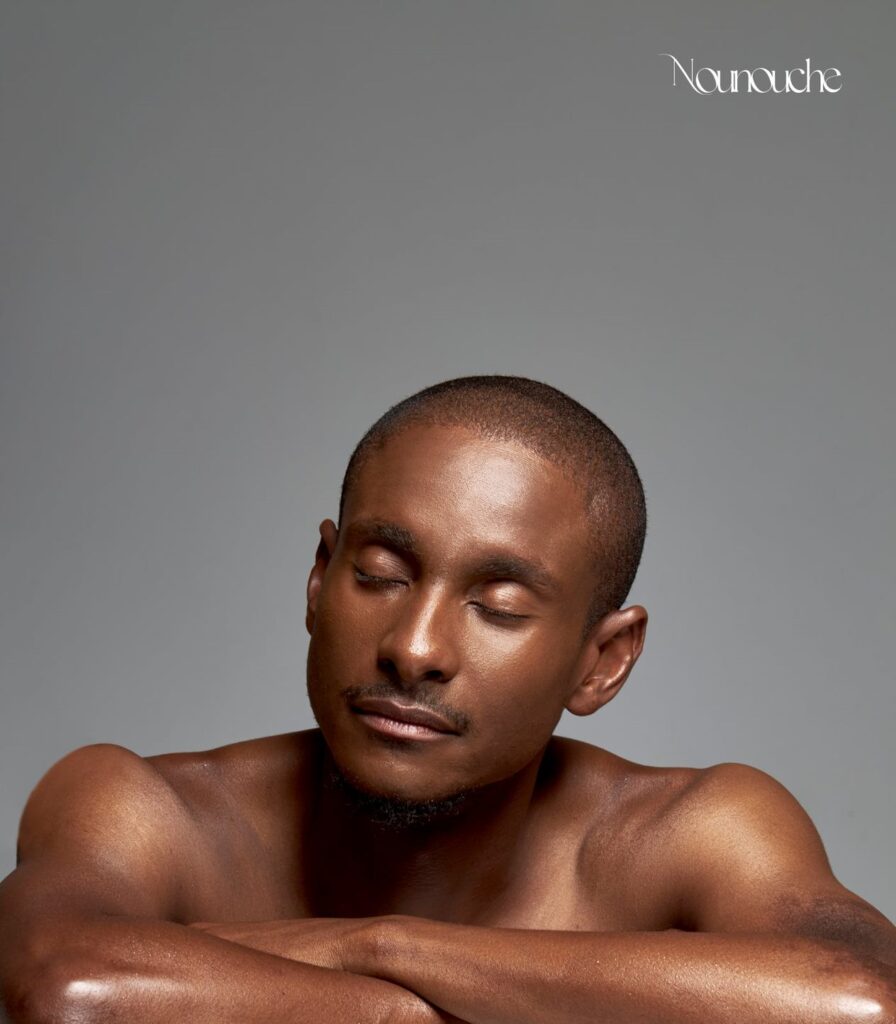
Loss
In 2020 Rulani lost his grandmother and has battled with the loss.
“You don’t heal from losing someone. I try not to think as much about it, some days are worse
than others but I’ve come to the understanding and acceptance that she is an angel that looks out for me. That brings me comfort and I believe that she is proud of me”
Rulani is still trying to find the true definition of success and he understands his position comes with responsibility and that is also being a role model to young boys. “
He has had to make many tough decisions along his journey, sacrificing for the game and losing friends and relationships in the process.
“When people say I am lucky to be where I am it doesn’t hurt me because I know the amount of time and energy I have put in to be where I am.”
Growing up in Orlando, Soweto, it was only inevitable that he would grow up in favour of the home team, Orlando Pirates. He refers to his time as head coach for the team as a privilege. It was a memorable, extremely important and necessary experience. I’ve had the incredible gift and privilege as head coach. I am grateful God blessed me with that opportunity. To whom much is given, much is required, Rulani says that a big part of that is also the recognition of the responsibility to work harder in attaining results.
His time at Chippa United was short but worth it and he hopes to one day spread his wings internationally like Pitso Mosimane who has opened doors for South African coaches.
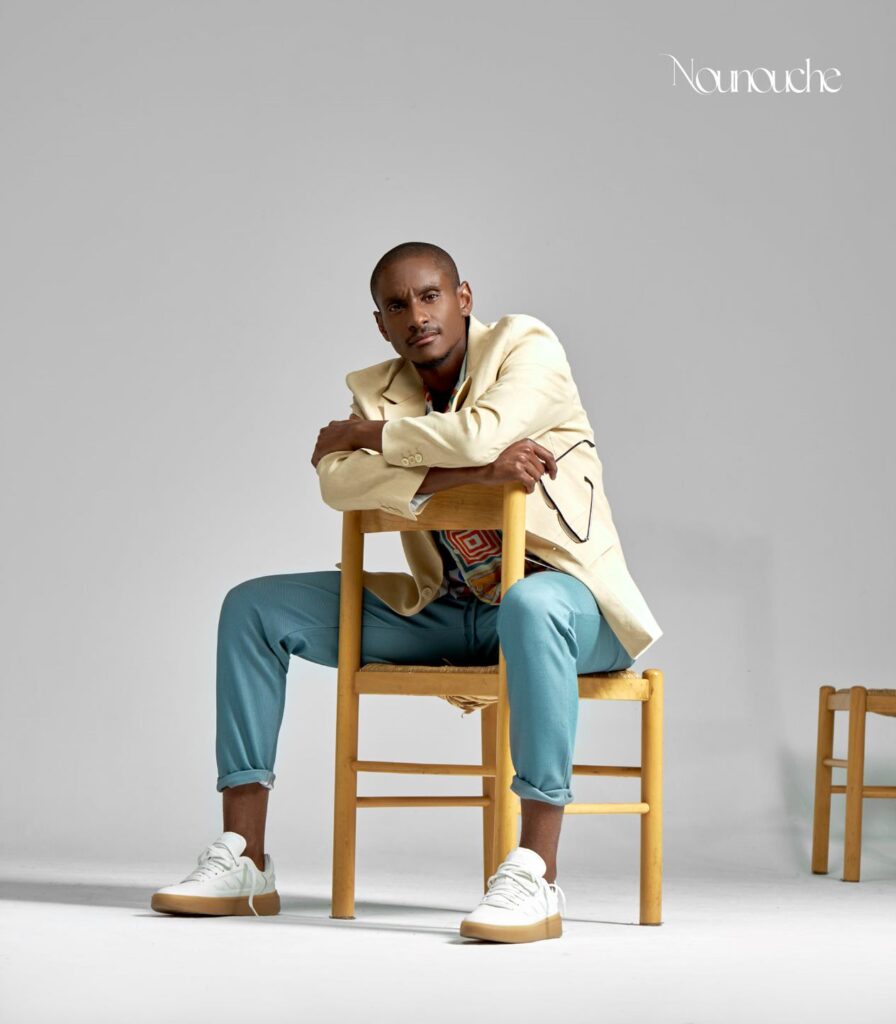
Therapy
Speaking on the importance of therapy, Rulani stresses the need for men to open up.
“It’s still taboo for men as they don’t feel safe to speak but as people who carry a lot of scars and wounds, therapy allows us to heal from the things of the world. It’s ok to be vulnerable and emotional. In vulnerability is strength and in weakness is growth.”
His coaching journey has attracted a lot of envy resulting in him being a lot more guarded around people.
“I have big trust issues, I’ve been betrayed far too many times. Human beings are fallible – no one is perfect, we all have a choice to be good or bad and that’s when it gets difficult to trust people. The journey to success speaks to the road less travelled. You just have to trust God and the universe to bring the right people to you.”
The five guests he would love to host around the dinner table are his late grandfather Eric ‘Scara’ Sono, Portuguese football manager José Mourinho, Manchester City manager Pep Guardiola and the late South African struggle stalwarts Nelson and Winnie Mandela.
When speaking about the pros and cons of social media, Rulani acknowledges its advantages which include being able to connect with different people, coaches and cultures across the globe.
“The cons include its influence on one’s mentality. Many people feel they have access to you. A big part of social media is what you choose to expose to people, it makes people who would not normally have the right to criticise you, start feeling that they have access to you.”
When it comes to his own social life, Rulani admits that he has none.
“I need to work towards that and correct it but football means so much to me that it’s part of my social life. Part of relaxing for me is also coaching a team I started back in 2005 Black Poison FC in Soweto, for the last 17 years. This is the team that allowed me to meet and coach some of the best players I’ve ever worked with, the likes of Thato Theledi, Tumi Mogotsi, Tumelo Mogale, Linda Shiba, Xola Mlambo, Sipho Moeti, Mpho Makola just to name a few.
Rulani has been journaling snippets of his life in the hope that he will one day be able to write an autobiography
“Hopefully I reach a point in my life where I’m worthy enough to write a book that people would be interested to read.”
His current music playlist includes a lot of different genres as his selection is always mood dependent.
“I’ve been playing Brandy’s Essentials most recently. I can play anything from Gospel to R&B. My mood fluctuates so the music I play and the clothes I wear speak a lot to my mood.”
He believes in comfort and not in brands, as long as he looks good and feels comfortable he is happy.
His current read is 12 Rules for Life: An Antidote to Chaos by Jordan B Peterson.
Speaking on women in football, Rulani says that societal prejudice for women in sport exists.
“The only way you can do your part is to extend kindness and respect towards them with every opportunity you get and play your part in trying to influence change and transformation.”
One thing fans would be shocked to learn about him is his love for cooking. Though he doesn’t do it often enough he considers himself a better cook than a coach.
Outsiders looking in would describe him as stoic, and resilient. He describes himself as driven and that is evident to what he has achieved at such a young age. When asked about the three things he can’t live without, his response is; football, his players and the team at large.
“I have taught myself not to be dependent on things, especially material things. There’s nothing I can really say I can’t live without.”
Rulani just got back from the World Cup in Qatar where he was able to experience some of the games and he hopes to see Brazil and France face off for the final game.
He is most grateful for life and having a clear understanding that it is a privilege and not a right to be able to breathe and wake up every morning.
“I am grateful for health, life experiences, failures and success, my family upbringing, career and talent.”
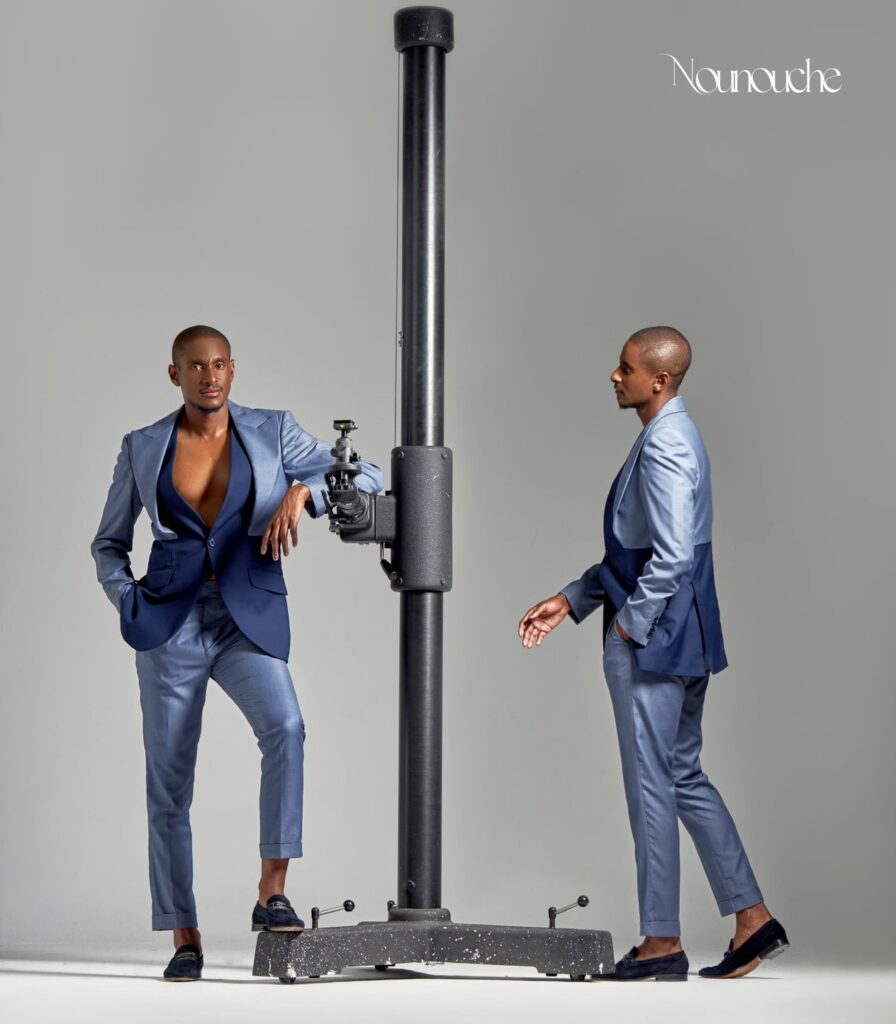
Credits:
Cover star: Rulani Mokwena
Cover story: Bonnie Meslane
Editor-in-Chief: Bonnie Meslane
Photographer: Katlego Mokubyane
Creative Director: Lesego Kgosimolao
Wardrobe designer: Prince Thabiso Mkhize
Styling: Advice by KgosiLesego
Makeup: Nono Linchwe
Producer: Bonnie Meslane
Wardrobe Assistant: Bongiwe Masina
Studio: Newkatz Studios
Videography: Mic Dlamini
Stockist:
Cover pants and jacket by Karl Lagerfeld
Shoes by Preview
Purple suit by Prince Thabiso Mkhize @Princebespokes
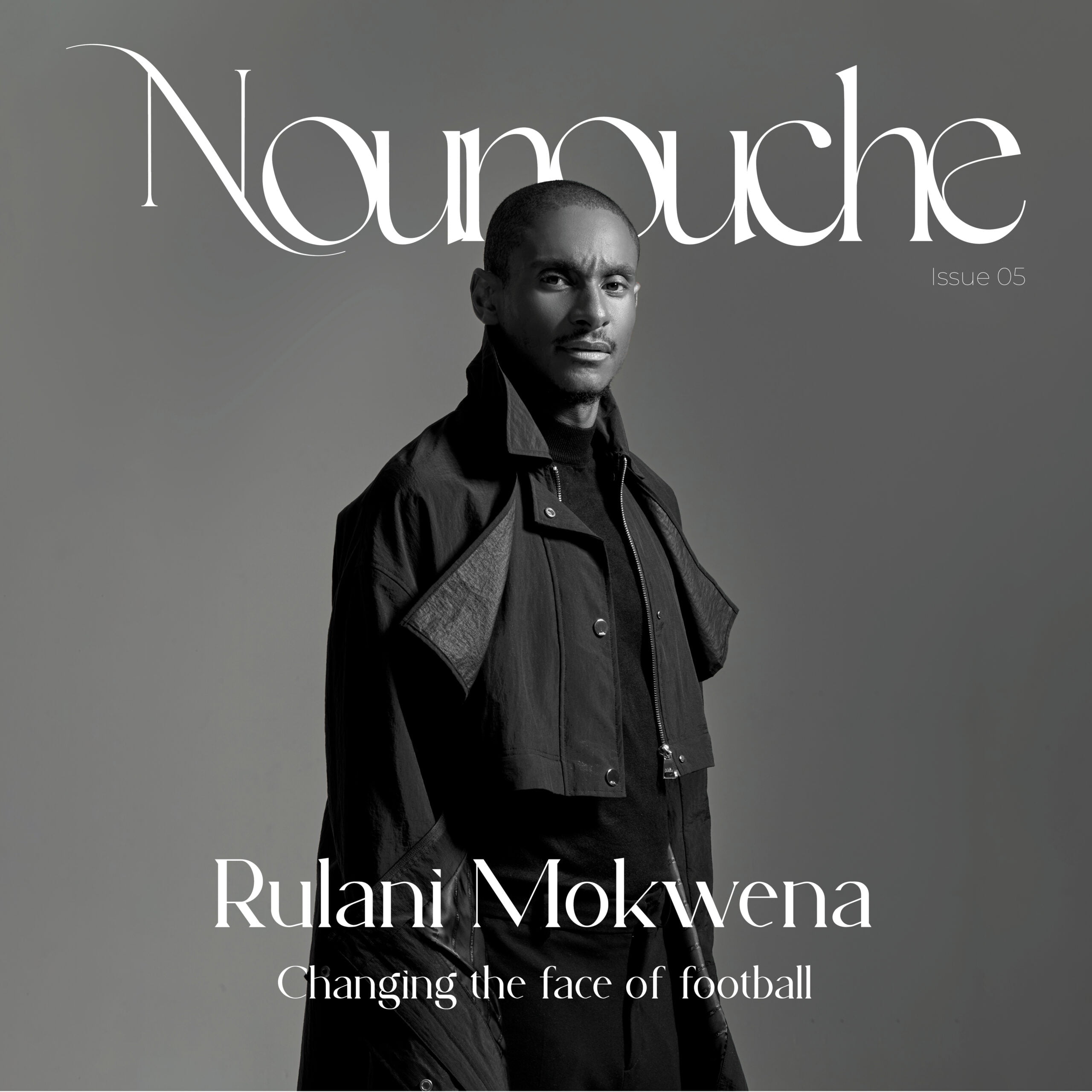
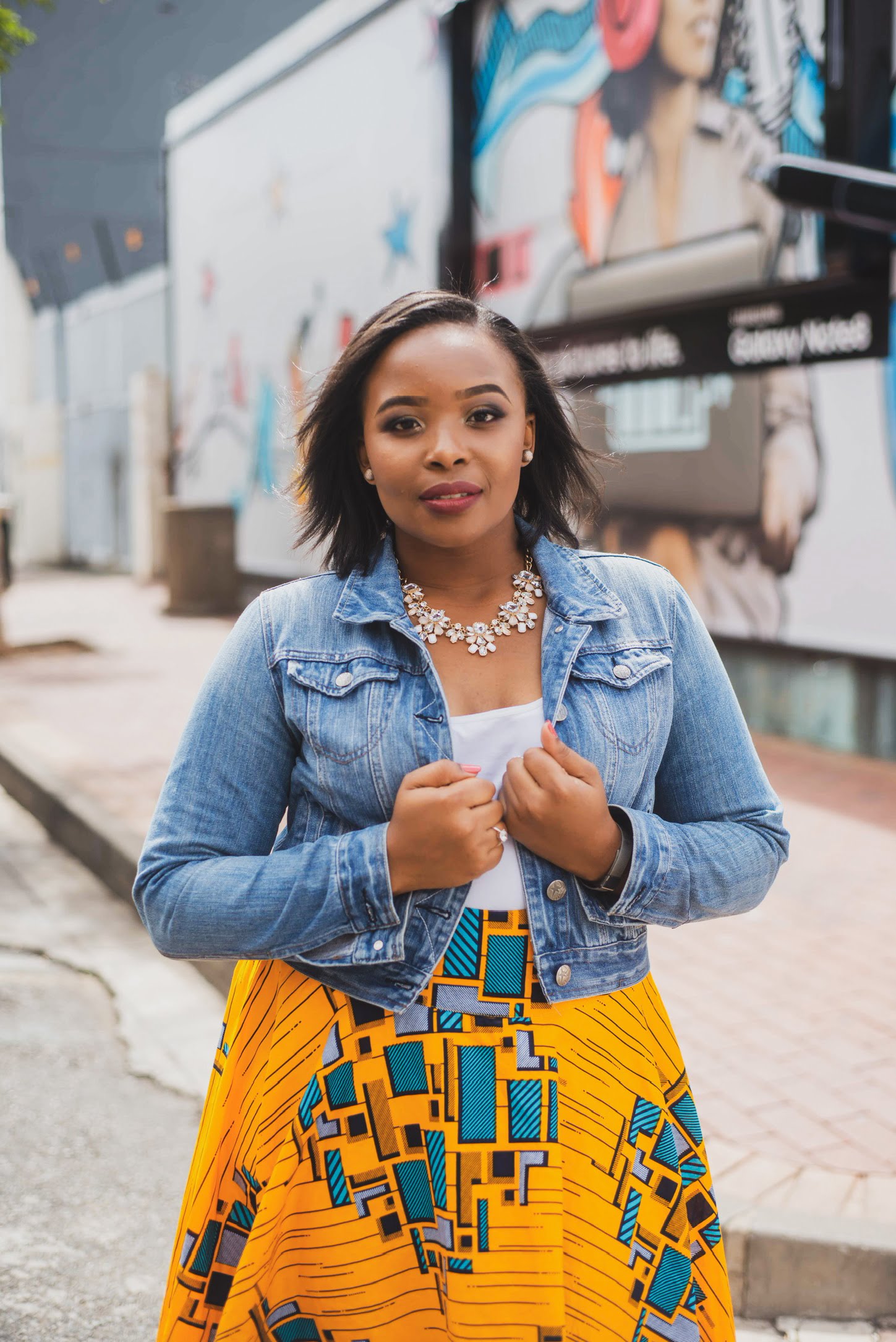
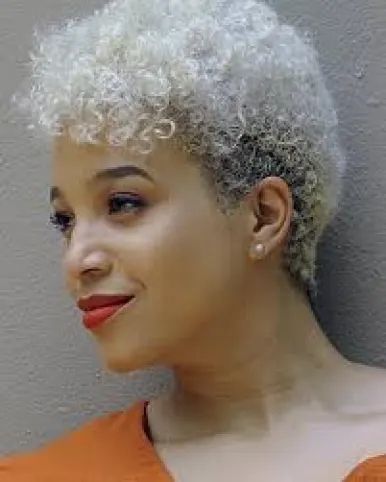
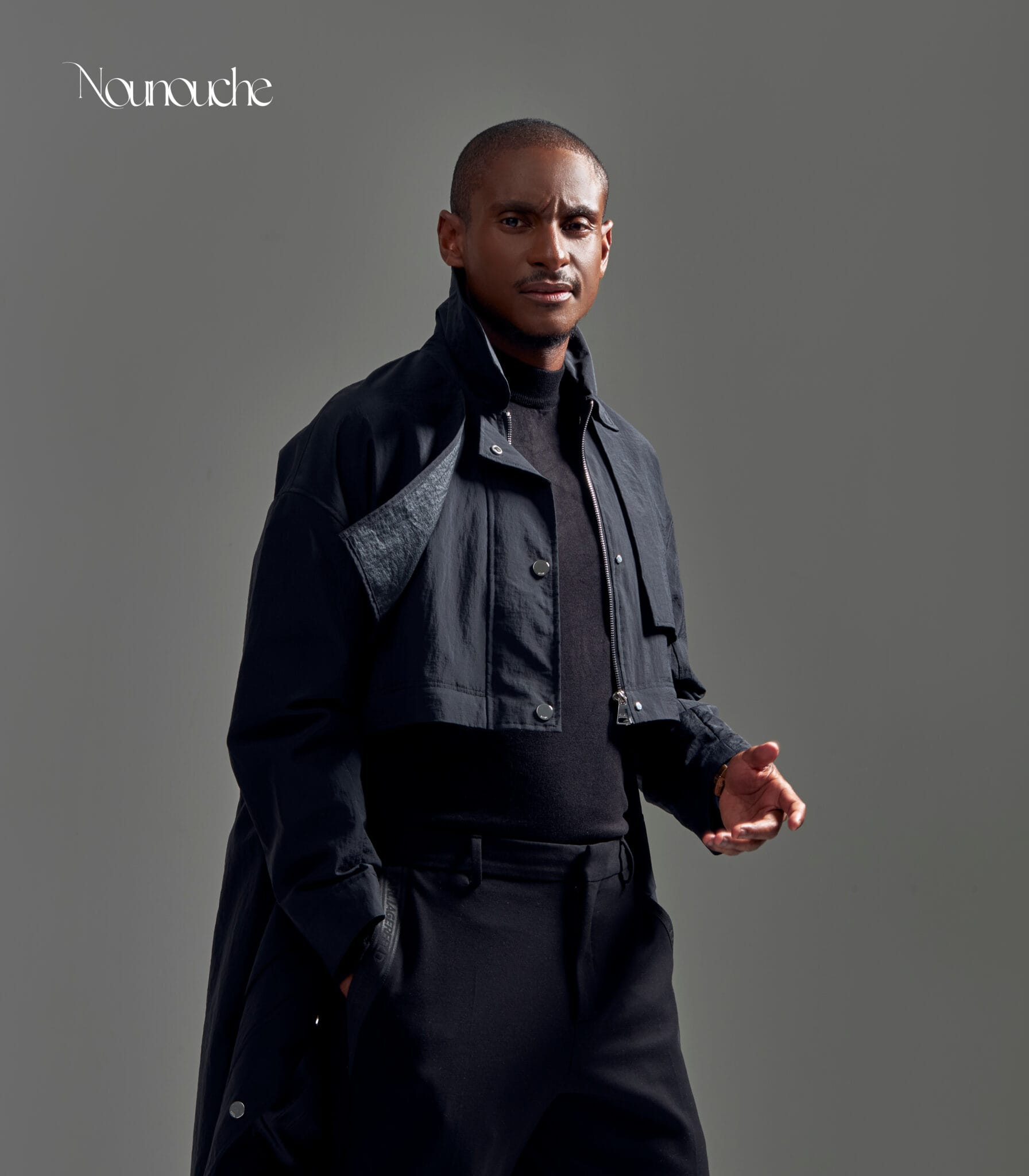

high quality natural stone products
… [Trackback]
[…] Information to that Topic: nounouche.online/rhulani-mokwena-changing-the-face-of-football/ […]
click through the up coming webpage
… [Trackback]
[…] Read More Info here to that Topic: nounouche.online/rhulani-mokwena-changing-the-face-of-football/ […]
호두코믹스
… [Trackback]
[…] Find More on that Topic: nounouche.online/rhulani-mokwena-changing-the-face-of-football/ […]
วิเคราะห์บอล
… [Trackback]
[…] Find More here to that Topic: nounouche.online/rhulani-mokwena-changing-the-face-of-football/ […]
สล็อต ฝากถอน true wallet เว็บตรง 888pg
… [Trackback]
[…] Here you can find 78143 additional Info on that Topic: nounouche.online/rhulani-mokwena-changing-the-face-of-football/ […]
ป้ายโฆษณา
… [Trackback]
[…] Read More Info here to that Topic: nounouche.online/rhulani-mokwena-changing-the-face-of-football/ […]
เพิ่มยอดไลค์
… [Trackback]
[…] Info to that Topic: nounouche.online/rhulani-mokwena-changing-the-face-of-football/ […]
muha disposable
… [Trackback]
[…] There you will find 72046 additional Information to that Topic: nounouche.online/rhulani-mokwena-changing-the-face-of-football/ […]
โบรกเกอร์ Forex น่าเชื่อถือ
… [Trackback]
[…] Read More Information here on that Topic: nounouche.online/rhulani-mokwena-changing-the-face-of-football/ […]
superkaya88
… [Trackback]
[…] Find More Information here to that Topic: nounouche.online/rhulani-mokwena-changing-the-face-of-football/ […]
goatpg
… [Trackback]
[…] Read More Information here on that Topic: nounouche.online/rhulani-mokwena-changing-the-face-of-football/ […]
หวยหุ้นวันนี้
… [Trackback]
[…] Read More Information here on that Topic: nounouche.online/rhulani-mokwena-changing-the-face-of-football/ […]
โปรแกรมพรีเมียร์ลีก
… [Trackback]
[…] Read More Info here to that Topic: nounouche.online/rhulani-mokwena-changing-the-face-of-football/ […]
superkaya88
… [Trackback]
[…] Info to that Topic: nounouche.online/rhulani-mokwena-changing-the-face-of-football/ […]
หวยยิ้ม มีหวยออนไลน์ประเภทไหนให้เล่นบ้าง
… [Trackback]
[…] Information to that Topic: nounouche.online/rhulani-mokwena-changing-the-face-of-football/ […]
Pragmatic Play
… [Trackback]
[…] Find More to that Topic: nounouche.online/rhulani-mokwena-changing-the-face-of-football/ […]
superkaya 88 slot login
… [Trackback]
[…] Info to that Topic: nounouche.online/rhulani-mokwena-changing-the-face-of-football/ […]
พรมปูพื้นรถยนต์ tank 300
… [Trackback]
[…] Information to that Topic: nounouche.online/rhulani-mokwena-changing-the-face-of-football/ […]
Fake 50 Canadian dollars
… [Trackback]
[…] Find More to that Topic: nounouche.online/rhulani-mokwena-changing-the-face-of-football/ […]
that site
… [Trackback]
[…] Read More Info here on that Topic: nounouche.online/rhulani-mokwena-changing-the-face-of-football/ […]
ดูหนังเต็มเรื่อง
… [Trackback]
[…] Read More Info here on that Topic: nounouche.online/rhulani-mokwena-changing-the-face-of-football/ […]
valorant cheat
… [Trackback]
[…] There you will find 48258 additional Information on that Topic: nounouche.online/rhulani-mokwena-changing-the-face-of-football/ […]
Buy MDMA Crystals Online
… [Trackback]
[…] Read More here to that Topic: nounouche.online/rhulani-mokwena-changing-the-face-of-football/ […]
lottovip
… [Trackback]
[…] Read More Info here to that Topic: nounouche.online/rhulani-mokwena-changing-the-face-of-football/ […]
Exology
… [Trackback]
[…] Read More on that Topic: nounouche.online/rhulani-mokwena-changing-the-face-of-football/ […]
ozempic online kaufen
… [Trackback]
[…] Read More Info here on that Topic: nounouche.online/rhulani-mokwena-changing-the-face-of-football/ […]
burn-out
… [Trackback]
[…] Find More to that Topic: nounouche.online/rhulani-mokwena-changing-the-face-of-football/ […]
รับออกแบบร้าน
… [Trackback]
[…] Read More Info here to that Topic: nounouche.online/rhulani-mokwena-changing-the-face-of-football/ […]
พูลวิลล่าพัทยา
… [Trackback]
[…] Information to that Topic: nounouche.online/rhulani-mokwena-changing-the-face-of-football/ […]
Whore Parody Movie Transsex Sex Movie cuck-old sex voucher My site: anal pussy vouchers transgender Feet Fetish Latina Anal sex Shaved Pussy Medium Tits Small Tits voucher Brunette Mature MILF discount code Anal Sex porn Lesbian vouchers Threesome Promote
… [Trackback]
[…] Find More Info here to that Topic: nounouche.online/rhulani-mokwena-changing-the-face-of-football/ […]
ล็อตเตอรี่ กับ หวยไทย แตกต่างกันยังไง ?
… [Trackback]
[…] Find More here to that Topic: nounouche.online/rhulani-mokwena-changing-the-face-of-football/ […]
https://stealthex.io
… [Trackback]
[…] Here you can find 25714 additional Information to that Topic: nounouche.online/rhulani-mokwena-changing-the-face-of-football/ […]
Sofwave
… [Trackback]
[…] Here you will find 45182 more Information to that Topic: nounouche.online/rhulani-mokwena-changing-the-face-of-football/ […]
best escape from tarkov exploits
… [Trackback]
[…] Read More to that Topic: nounouche.online/rhulani-mokwena-changing-the-face-of-football/ […]
cheap fn cheat
… [Trackback]
[…] Info on that Topic: nounouche.online/rhulani-mokwena-changing-the-face-of-football/ […]
ต่อผมแท้
… [Trackback]
[…] Find More on that Topic: nounouche.online/rhulani-mokwena-changing-the-face-of-football/ […]
เว็บพนันเกาหลี
… [Trackback]
[…] Read More here to that Topic: nounouche.online/rhulani-mokwena-changing-the-face-of-football/ […]
สล็อตค่าย pg เกมใหม่ๆ
… [Trackback]
[…] Find More here to that Topic: nounouche.online/rhulani-mokwena-changing-the-face-of-football/ […]
กระเบื้องทางเท้า
… [Trackback]
[…] Find More on to that Topic: nounouche.online/rhulani-mokwena-changing-the-face-of-football/ […]
ป้ายแท็ก
… [Trackback]
[…] Here you can find 66107 additional Information on that Topic: nounouche.online/rhulani-mokwena-changing-the-face-of-football/ […]
ตรวจ หวย ลาว
… [Trackback]
[…] Info to that Topic: nounouche.online/rhulani-mokwena-changing-the-face-of-football/ […]
หนังโป๊ไทย
… [Trackback]
[…] There you will find 60696 additional Info on that Topic: nounouche.online/rhulani-mokwena-changing-the-face-of-football/ […]
Pingback: Top 5 highest-paid coaches in the Betway Premiership – Vitisportsandlife | Latest Sports News | Scores | Breaking News
Pingback: Top 5 highest-paid coaches in the Betway Premiership – Blitsbox
Pingback: Top 5 highest-paid coaches in the Betway Premiership – Betway Premiership
Pingback: Prime 5 highest-paid coaches within the Betway Premiership - Southern Africa News Agency
Pingback: Top 5 highest-paid coaches in the Betway Premiership – sheknows
Pingback: Top 5 highest-paid coaches in the Betway Premiership – Kasi sports
โคมไฟ
… [Trackback]
[…] Find More here on that Topic: nounouche.online/rhulani-mokwena-changing-the-face-of-football/ […]